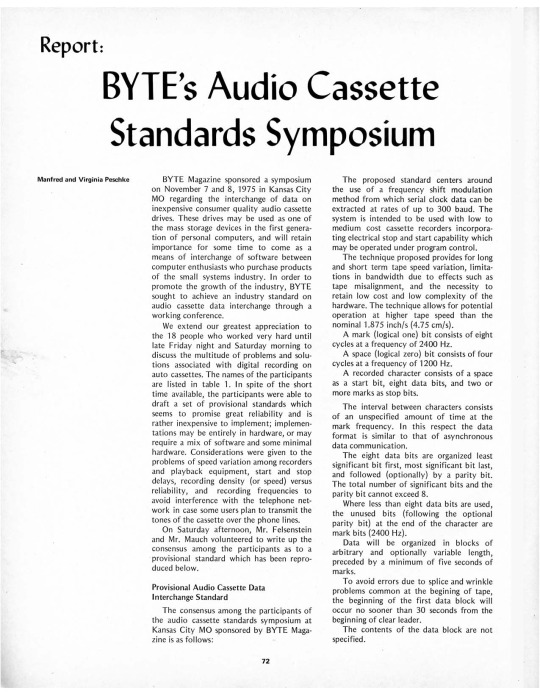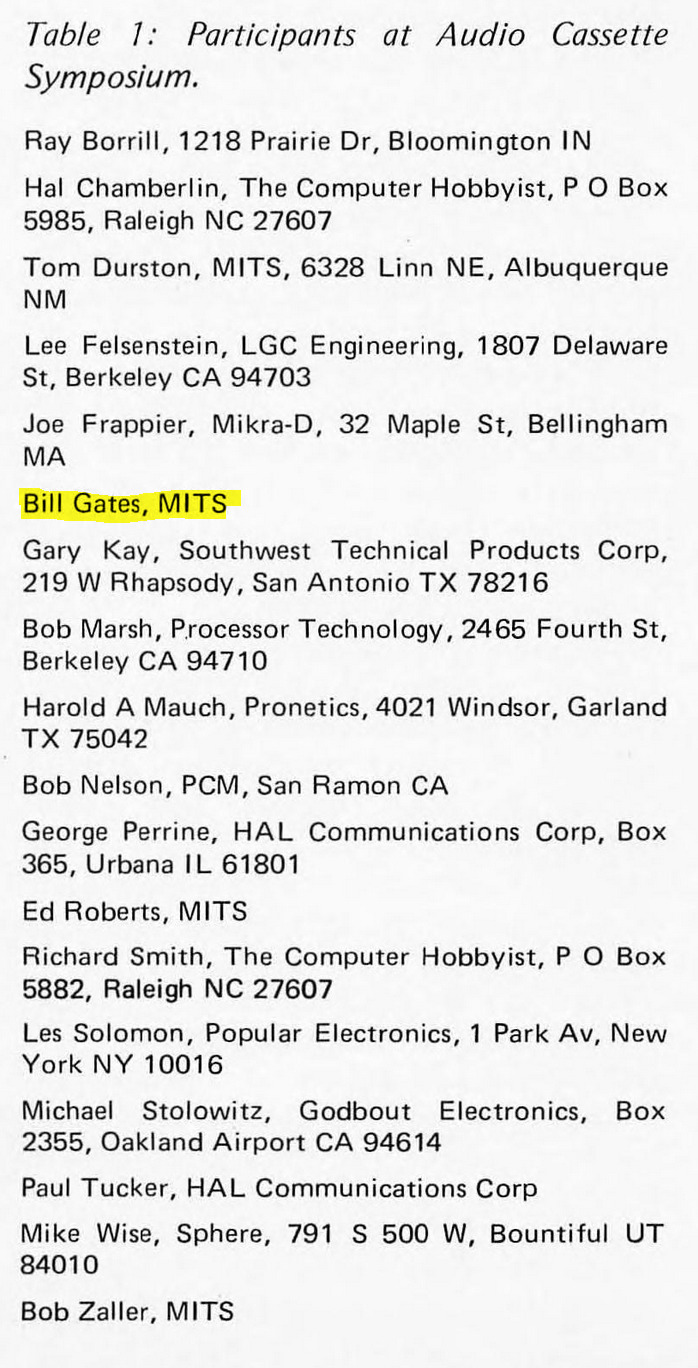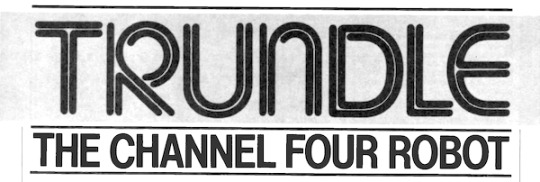#software uk based
Explore tagged Tumblr posts
Text
Trusted Software Development Company in the UK | EquiConsulting Services Pvt Ltd
EquiConsulting Services Pvt Ltd is a reliable and innovative software development company serving businesses across the UK. We specialize in delivering high-performance, tailor-made software solutions that drive digital transformation and streamline operations.
Our expert team offers comprehensive services including custom software development, mobile app development, cloud solutions, enterprise automation, and system integration. Whether you're a startup or a large enterprise, EquiConsulting provides scalable and secure technology solutions aligned with your business goals.
With a strong focus on quality, timely delivery, and client satisfaction, we ensure that every software project we undertake adds real value to your business.
🔹 Bespoke Software Development 🔹 Mobile & Web App Solutions 🔹 Scalable Cloud Architecture 🔹 UK-Based Project Coordination 🔹 End-to-End Support & Maintenance
Choose EquiConsulting Services Pvt Ltd — Your Trusted Software Development Partner in the UK.
0 notes
Text

Payroll Considerations
Effective payroll management is critical for organizations to guarantee employee payments are correct, timely, and in compliance with tax rules. Businesses must stay up to date on payroll deadlines and commitments to avoid penalties and keep operations running smoothly.
-> Payroll Services for Specific Industries in the UK:
Payroll Services for Home Carers in the UK: Home care agencies and individual carers can benefit from payroll services suited to their specific requirements, such as handling varying hours, overtime, and holiday pay.
Payroll for Nurseries in the UK: Nurseries and childcare providers require payroll systems that allow for flexible staffing schedules while adhering to child-care standards.
-> Cloud Payroll Software Solutions:
Cloud-based payroll software gives businesses flexibility, scalability, and accessibility. It allows them to administer payroll from any location with an internet connection. With features like automated calculations, real-time reporting, and compliance updates, cloud payroll software is an efficient alternative for organizations of all sizes.
-> Conclusion:
Being aware of significant dates and deadlines for the fiscal year 2024-25 is critical for organizations and people seeking to comply with tax legislation and manage their finances successfully. Businesses may streamline payroll management and maintain smooth operations throughout the fiscal year by using industry-specific payroll services and cloud payroll software solutions.
Read full blog: https://www.brainpayroll.co.uk/blog/financial-year-2024-25-important-dates-to-remember
#cloud based payroll software uk#payroll bureau#payroll bureau software#payroll software#payroll software for accountants#cloud payroll software#cloud based payroll software#cloud payroll software uk#payroll software uk
0 notes
Text
Lina Khan’s future is the future of the Democratic Party — and America

On OCTOBER 23 at 7PM, I'll be in DECATUR, presenting my novel THE BEZZLE at EAGLE EYE BOOKS.

On the one hand, the anti-monopoly movement has a future no matter who wins the 2024 election – that's true even if Kamala Harris wins but heeds the calls from billionaire donors to fire Lina Khan and her fellow trustbusters.
In part, that's because US antitrust laws have broad "private rights of action" that allow individuals and companies to sue one another for monopolistic conduct, even if top government officials are turning a blind eye. It's true that from the Reagan era to the Biden era, these private suits were few and far between, and the cases that were brought often died in a federal courtroom. But the past four years has seen a resurgence of antitrust rage that runs from left to right, and from individuals to the C-suites of big companies, driving a wave of private cases that are prevailing in the courts, upending the pro-monopoly precedents that billionaires procured by offering free "continuing education" antitrust training to 40% of the Federal judiciary:
https://pluralistic.net/2021/08/13/post-bork-era/#manne-down
It's amazing to see the DoJ racking up huge wins against Google's monopolistic conduct, sure, but first blood went to Epic, who won a historic victory over Google in federal court six months before the DoJ's win, which led to the court ordering Google to open up its app store:
https://www.theverge.com/policy/2024/10/7/24243316/epic-google-permanent-injunction-ruling-third-party-stores
Google's 30% App Tax is a giant drag on all kinds of sectors, as is its veto over which software Android users get to see, so Epic's win is going to dramatically alter the situation for all kinds of activities, from beleaguered indie game devs:
https://antiidlereborn.com/news/
To the entire news sector:
https://www.eff.org/deeplinks/2023/06/save-news-we-must-open-app-stores
Private antitrust cases have attracted some very surprising plaintiffs, like Michael Jordan, whose long policy of apoliticism crumbled once he bought a NASCAR team and lived through the monopoly abuses of sports leagues as an owner, not a player:
https://www.thebignewsletter.com/p/michael-jordan-anti-monopolist
A much weirder and more unlikely antitrust plaintiff than Michael Jordan is Google, the perennial antitrust defendant. Google has brought a complaint against Microsoft in the EU, based on Microsoft's extremely ugly monopolistic cloud business:
https://www.reuters.com/technology/google-files-complaint-eu-over-microsoft-cloud-practices-2024-09-25/
Google's choice of venue here highlights another reason to think that the antitrust surge will continue irrespective of US politics: antitrust is global. Antitrust fervor has seized governments from the UK to the EU to South Korea to Japan. All of those countries have extremely similar antitrust laws, because they all had their statute books overhauled by US technocrats as part of the Marshall Plan, so they have the same statutory tools as the American trustbusters who dismantled Standard Oil and AT&T, and who are making ready to shatter Google into several competing businesses:
https://www.theverge.com/2024/10/8/24265832/google-search-antitrust-remedies-framework-android-chrome-play
Antitrust fever has spread to Canada, Australia, and even China, where the Cyberspace Directive bans Chinese tech giants from breaking interoperability to freeze out Chinese startups. Anything that can't go on forever eventually stops, and the cost of 40 years of pro-monopoly can't be ignored. Monopolies make the whole world more brittle, even as the cost of that brittleness mounts. It's hard to pretend monopolies are fine when a single hurricane can wipe out the entire country's supply of IV fluid – again:
https://prospect.org/health/2024-10-11-cant-believe-im-writing-about-iv-fluid-again/
What's more, the conduct of global monopolists is the same in every country where they have taken hold, which means that trustbusters in the EU can use the UK Digital Markets Unit's report on the mobile app market as a roadmap for their enforcement actions against Apple:
https://assets.publishing.service.gov.uk/media/63f61bc0d3bf7f62e8c34a02/Mobile_Ecosystems_Final_Report_amended_2.pdf
And then the South Korean and Japanese trustbusters can translate the court documents from the EU's enforcement action and use them to score victories over Apple in their own courts:
https://pluralistic.net/2024/04/10/an-injury-to-one/#is-an-injury-to-all
So on the one hand, the trustbusting wave will continue erode the foundations of global monopolies, no matter what happens after this election. But on the other hand, if Harris wins and then fires Biden's top trustbusters to appease her billionaire donors, things are going to get ugly.
A new, excellent long-form Bloomberg article by Josh Eidelson and Max Chafkin gives a sense of the battle raging just below the surface of the Democratic Power, built around a superb interview with Khan herself:
https://www.bloomberg.com/news/features/2024-10-09/lina-khan-on-a-second-ftc-term-ai-price-gouging-data-privacy
The article begins with a litany of tech billionaires who've gone an all-out, public assault on Khan's leadership – billionaires who stand to personally lose hundreds of millions of dollars from her agency's principled, vital antitrust work, but who cloak their objection to Khan in rhetoric about defending the American economy. In public, some of these billionaires are icily polite, but many of them degenerate into frothing, toddler-grade name-calling, like IAB's Barry Diller, who called her a "dope" and Musk lickspittle Jason Calacanis, who called her an all-caps COMMUNIST and a LUNATIC.
The overall vibe from these wreckers? "How dare the FTC do things?!"
And you know, they have a point. For decades, the FTC was – in the quoted words of Tim Wu – "a very hardworking agency that did nothing." This was the period when the FTC targeted low-level scammers while turning a blind eye to the monsters that were devouring the US economy. In part, that was because the FTC had been starved of budget, trapping them in a cycle of racking up easy, largely pointless "wins" against penny-ante grifters to justify their existence, but never to the extent that Congress would apportion them the funds to tackle the really serious cases (if this sounds familiar, it's also the what happened during the long period when the IRS chased middle class taxpayers over minor filing errors, while ignoring the billionaires and giant corporations that engaged in 7- and 8-figure tax scams).
But the FTC wasn't merely underfunded: it was timid. The FTC has extremely broad enforcement and rulemaking powers, which most sat dormant during the neoliberal era:
https://pluralistic.net/2023/01/10/the-courage-to-govern/#whos-in-charge
The Biden administration didn't merely increase the FTC's funding: in choosing Khan to helm the organization, they brought onboard a skilled technician, who was both well-versed in the extensive but unused powers of the agency and determined to use them:
https://pluralistic.net/2022/10/18/administrative-competence/#i-know-stuff
But Khan's didn't just rely on technical chops and resources to begin the de-olicharchification of the US economy: she built a three-legged stool, whose third leg is narrative. Khan's signature is her in-person and remote "listening tours," where workers who've been harmed by corporate power get to tell their stories. Bloomberg recounts the story of Deborah Brantley, who was sexually harassed and threatened by her bosses at Kavasutra North Palm Beach. Brantley's bosses touched her inappropriately and "joked" about drugging her and raping her so she "won’t be such a bitch and then maybe people would like you more."
When Brantley finally quit and took a job bartending at a different business, Kavasutra sued her over her noncompete clause, alleging an "irreparable injury" sustained by having one of their former employees working at another business, seeking damages and fees.
The vast majority of the 30 million American workers who labor under noncompetes are like Brantley, low-waged service workers, especially at fast-food restaurants (so Wendy's franchisees can stop minimum wage cashiers from earning $0.25/hour more flipping burgers at a nearby McDonald's). The donor-class indenturers who defend noncompetes claim that noncompetes are necessary to protect "innovative" businesses from losing their "IP." But of course, the one state where no workers are subject to noncompetes is California, which bans them outright – the state that is also home to Silicon Valley, an IP-heave industry that the same billionaires laud for its innovations.
After that listening tour, Khan's FTC banned noncompetes nationwide:
https://pluralistic.net/2024/04/25/capri-v-tapestry/#aiming-at-dollars-not-men
Only to have a federal judge in Texas throw out their ban, a move that will see $300b/year transfered from workers to shareholders, and block the formation of 8,500 new US businesses every year:
https://www.npr.org/2024/08/21/g-s1-18376/federal-judge-tosses-ftc-noncompetes-ban
Notwithstanding court victories like Epic v Google and DoJ v Google, America's oligarchs have the courts on their side, thanks to decades of court-packing planned by the Federalist Society and executed by Senate Republicans and Reagan, Bush I, Bush II, and Trump. Khan understands this; she told Bloomberg that she's a "close student" of the tactics Reagan used to transform American society, admiring his effectiveness while hating his results. Like other transformative presidents, good and bad, Reagan had to fight the judiciary and entrenched institutions (as did FDR and Lincoln). Erasing Reagan's legacy is a long-term project, a battle of inches that will involve mustering broad political support for the cause of a freer, more equal America.
Neither Biden nor Khan are responsible for the groundswell of US – and global – movement to euthanize our rentier overlords. This is a moment whose time has come; a fact demonstrated by the tens of thousands of working Americans who filled the FTC's noncompete docket with outraged comments. People understand that corporate looters – not "the economy" or "the forces of history" – are the reason that the businesses where they worked and shopped were destroyed by private equity goons who amassed intergenerational, dynastic fortunes by strip-mining the real economy and leaving behind rubble.
Like the billionaires publicly demanding that Harris fire Khan, private equity bosses can't stop making tone-deaf, guillotine-conjuring pronouncements about their own virtue and the righteousness of their businesses. They don't just want to destroy the world - they want to be praised for it:/p>
"Private equity’s been a great thing for America" -Stephen Pagliuca, co-chairman of Bain Capital;
"We are taught to judge the success of a society by how it deals with the least able, most vulnerable members of that society. Shouldn’t we judge a society by how they treat the most successful? Do we vilify, tax, expropriate and condemn those who have succeeded, or do we celebrate economic success as the engine that propels our society toward greater collective well-being?" -Marc Rowan, CEO of Apollo
"Achieve life-changing money and power," -Sachin Khajuria, former partner at Apollo
Meanwhile, the "buy, strip and flip" model continues to chew its way through America. When PE buys up all the treatment centers for kids with behavioral problems, they hack away at staffing and oversight, turning them into nightmares where kids are routinely abused, raped and murdered:
https://www.nbcnews.com/news/us-news/they-told-me-it-was-going-be-good-place-allega-tions-n987176
When PE buys up nursing homes, the same thing happens, with elderly residents left to sit in their own excrement and then die:
https://www.politico.com/news/magazine/2023/12/24/nursing-homes-private-equity-fraud-00132001
Writing in The Guardian, Alex Blasdel lays out the case for private equity as a kind of virus that infects economies, parasitically draining them of not just the capacity to provide goods and services, but also of the ability to govern themselves, as politicians and regulators are captured by the unfathomable sums that PE flushes into the political process:
https://www.theguardian.com/business/2024/oct/10/slash-and-burn-is-private-equity-out-of-control
Now, the average worker who's just lost their job may not understand "divi recaps" or "2-and-20" or "carried interest tax loopholes," but they do understand that something is deeply rotten in the world today.
What happens to that understanding is a matter of politics. The Republicans – firmly affiliated with, and beloved of, the wreckers – have chosen an easy path to capitalizing on the rising rage. All they need to do is convince the public that the system is irredeemably corrupt and that the government can't possibly fix anything (hence Reagan's asinine "joke": "the nine most terrifying words in the English language are: 'I'm from the Government, and I'm here to help'").
This is a very canny strategy. If you are the party of "governments are intrinsically corrupt and incompetent," then governing corruptly and incompetently proves your point. The GOP strategy is to create a nation of enraged nihilists who don't even imagine that the government could do something to hold their bosses to account – not for labor abuses, not for pollution, not for wage theft or bribery.
The fact that successive neoliberal governments – including Democratic administrations – acted time and again to bear out this hypothesis makes it easy for this kind of nihilism to take hold.
Far-right conspiracies about pharma bosses colluding with corrupt FDA officials to poison us with vaccines for profit owe their success to the lived experience of millions of Americans who lost loved ones to a conspiracy between pharma bosses and corrupt officials to poison us with opioids.
Unhinged beliefs that "they" caused the hurricanes tearing through Florida and Georgia and that Kamala Harris is capping compensation to people who lost their homes are only credible because of murderous Republican fumble during Katrina; and the larcenous collusion of Democrats to help banks steal Americans' homes during the foreclosure crisis, when Obama took Tim Geithner's advice to "foam the runway" with the mortgages of everyday Americans who'd been cheated by their banks:
https://www.salon.com/2014/05/14/this_man_made_millions_suffer_tim_geithners_sorry_legacy_on_housing/
If Harris gives in to billionaire donors and fires Khan and her fellow trustbusters, paving the way for more looting and scamming, the result will be more nihilism, which is to say, more electoral victories for the GOP. The "government can't do anything" party already exists. There are no votes to be gained by billing yourself as the "we also think governments can't do anything" party.
In other words, a world where Khan doesn't run the FTC is a world where antitrust continues to gain ground, but without taking Democrats with it. It's a world where nihilism wins.
There's factions of the Democratic Party who understand this. AOC warned party leaders that, "Anyone goes near Lina Khan and there will be an out and out brawl":
https://twitter.com/AOC/status/1844034727935988155
And Bernie Sanders called her "the best FTC Chair in modern history":
https://twitter.com/SenSanders/status/1843733298960576652
In other words: Lina Khan as a posse.

Tor Books as just published two new, free LITTLE BROTHER stories: VIGILANT, about creepy surveillance in distance education; and SPILL, about oil pipelines and indigenous landback.


If you'd like an essay-formatted version of this post to read or share, here's a link to it on pluralistic.net, my surveillance-free, ad-free, tracker-free blog:
https://pluralistic.net/2024/10/11/democracys-antitrust-paradox/#there-will-be-an-out-and-out-brawl
#pluralistic#ftc#lina khan#democratic party#elections#kamala harris#billionaires#trustbusting#competition#labor#noncompetes#silicon valley#aoc
407 notes
·
View notes
Text
It's time to get serious.
The UK government wants to relax laws surrounding copyright in relation to AI and the companies that want to train it and steal art to make their corporate slop.
WHAT YOU CAN DO: 1. Watch this video and get educated on the matter in more detail. (Don't worry, it's only about 11 minutes long)
youtube
2. Go into the comments and leave a heart as a comment to help the video's algorithm placement or say something on the topic instead if you feel like it. 2.5. (UK CITIZENS ONLY) Use the pinned google doc provided by the OP in the comments and send an email to your MP, send a second to the UK Copyright Infringement Organisation, and then copy & paste the written responses and answer the yes/no's on their survey. All you need to say is provided, both for the emails and for every question in the survey, in that google doc.
3. (EVERYONE) Reblog this post. Share the youtube video. Tell your friends, tell your colleagues, tell your neighbour who painted that mural on the wall of the library in 2008. I don't care that you might not want to reblog this from a kink art blog. This is important and this blog has by far my biggest audience. This issue is just that pressing. This doesn't just affect people who draw smut,
it affects people who draw safe for work fanart,
it affects OC artists,
it affects fanfiction authors,
it affects that one deviantart artist who draws My Little Pony bases
that you like to print out for your neice,
it affects musicians,
it affects coders and software engineers,
it affects photographers,
it affects videographers,
it affects your great aunt Linda who sells her hand-drawn stickers on fucking Etsy, It affects culture.
We have until February 25th. All I ask of you now, is this:
BE LOUD.
#soft5ku11 speaking#artists on tumblr#digital artist#artwork#drawing#illustration#art on tumblr#Youtube
121 notes
·
View notes
Text

The Citizen Lab says it informed officials that suspected Pegasus spyware was discovered in 2020 and 2021, with the Downing Street incident linked to operators in the UAE. Pegasus is sold by NSO Group to governments to carry out surveillance through infecting phones with malicious software. The Israeli-based company has denied the allegations, saying they are false and could not have taken place. The Citizen Lab, which tracks electronic surveillance, said in 2020 and 2021 it notified the UK government that networks belonging to both 10 Downing Street and the Foreign and Commonwealth Office were suspected to have been infected using Pegasus spyware. Pegasus allows governments to take control of people's phones, extract data and carry out surveillance. NSO Group has always defended its use, saying it is only sold to selected governments for legitimate law enforcement and intelligence purposes, such as against criminals or terrorists.
#yemen#jerusalem#tel aviv#current events#palestine#free palestine#gaza#free gaza#news on gaza#palestine news#news update#war news#war on gaza#great britain#cyber security
307 notes
·
View notes
Text


Special Delivery: Santa’s Christmas Chaos (C64)
Developed/Published by: Dalali Software / Creative Sparks (Thorn EMI Computer Software) Released: 1984 Completed: 05/12/2024 Completion: Got a high score of 8750. I’ll take it!
Writing about old video games for an audience of very few could seem like a thankless task–especially when they’re as awful as Christmas Crackers. But there’s a reason I do it. One, I just love playing games, even if they’re so crap I give up on them in minutes. Two, I just love learning. I love discovery, I love finding out things that are new to me about video games and their history. And sometimes, if I’m lucky, I find out some things that no one has really paid attention to before.
I never thought playing a completely random Christmas cash-in on C64 would bring me anything like that.
Special Delivery: Santa’s Christmas Chaos is a game for C64, Spectrum and Atari 8-Bit released by Dalali Software under Thorn EMI’s “Creative Sparks” imprint. At the time it sank without trace due to, apparently, a lack of marketing. After playing it–and I will get into that–I did my usual investigation into the developer, and was quite prepared to dismiss Dalali as one of the many fly-by-night British game developers of the 1980s–they appeared to be only a going concern between 1984 and 1989 and didn’t have any particularly notable games to their name. They were responsible for ports of Rescue On Fractalus and Lilttle Computer People to Amstrad CPC, but largely seem to have had the bad luck of being most related to 1986’s Biggles game. The weirdest thing about that is that not only did I really like the movie on which it was based (which I’m sure no one else remembers but me) when I was a kid, watching it on telly several times, I’ve actually played the game! It was on Amstrad Action #68’s covertape (along with How To Be A Complete Bastard!) and, as vague as my memories of it are now, I’m sure I played it loads of times. Less than How To Be A Complete Bastard, admittedly.
This led me to dig a little further, and sometimes things just fall into place, because I found an astonishingly in-depth article from Sham Mountebank’s When Were They Now? blog (a new one to me) all about Dalali. I think Mountebank slightly buries the lede however, because digging into the linked articles it seems absolutely remarkable that Dalali is not only in the ranks of the earliest companies to have been founded (or co-founded) by a woman, but very likely the first game company founded by a Palestinian: Hanan Samara.

Hanan Samara, pictured in Computer & Video Games March 1985.
Game companies had been co-founded by women before–most famously Sierra, by Roberta Williams and her husband Ken in 1979–but I think Samara’s story might be unique. According to an interview with ANTIC The Atari 8-bit Podcast she believes she might have been the first female assembly programmer in the UK, starting out by converting software to work for the Arabic market. Moving to work for Thorn EMI, she’d see a Humpty Dumpty puzzle game–programmed by her future husband(!) Chris James–and be “hooked.”
After coding Jumbo Jet Pilot for Atari 8-Bit for Thorn EMI, it seems that she made the leap to founding Dalali–named for her mother’s maiden name (as her mother said go for it, while her dad said to get a job at IBM...) with another ex-employee, Adrian Wadley.
Something I really appreciate about Samara’s story is that she immediately brought herself to game design, with Dalali’s first game “Jinn Genie”. While this kind of Arabic-theming undoubtedly seems stereotypical today, in an interview with Popular Computing Weekly it is clear that this is an early example of someone trying to represent their culture via the art of video games:
“Jinn Genie is a game that incorporates many of the basic myths and children’s stories of my culture–I am an Arab, a Palestinian, and all the ideas of genies and so on are familiar to me.”

Jinn Genie, on C64.
The most disappointing thing, to me, is that Samara is, at this point, unheralded outside of a blog post, one short podcast, and about… three short articles featuring three pictures that can be found on archive.org! She’s one of the UK’s earliest female programmers, game designers and founders, perhaps the first Palestinian game developer, and she has managed to run Dalali since 1984 because it’s still going–they just stopped making games.
Samara’s story isn’t mine to tell, so I hope that institutions like GDC, The Video Game History Foundation or The Strong can find out more and champion her. Figures such as Muriel Tramis have gone from overlooked to winning the Legion of Honour, and if I can help get the word out about Hanan Samara, just a little bit, I’ll feel I’ve done my part.
But I know what you’re asking now.
“But how good is Special Delivery: Santa’s Christmas Chaos???”
So let's return to regular programming. First, I’m going to note that I believe I have played the wrong version of this. When it came to games, Samara was an Atari 8-bit coder, and it is absolutely transparent that Special Delivery is based entirely on Jinn Genie–both feature a flying section, a climbing section, and a section with floors and ladders. It does feel like I should have played the Atari 8-bit version to experience the most representative version, as I did with playing the C64 version of Pirates, let’s say.
(It’s worth mentioning here also that the ANTIC podcast–recorded seven years ago now–even notes that the version of Jinn Genie that Samara coded, for the Atari 8-bit, seems to be lost, although Samara does say that she has a copy of it somewhere. Aforementioned institutions could probably help with that too. What that largely means, though, is that the Atari 8-bit version of Special Delivery is the closest you can get to playing the original Jinn Genie.)
To be fair, the C64 version seems pretty close to the original (the ZX Spectrum port is… not).
As I’ve said previously, my expectations for a Chrimbo cash-in have been low, and no matter how much this is sort of a reskin of a previous game, that it’s got an idea and an actual design exceeds anything I’ve expected. At first glance you might go “well, isn’t this just Santa Claus again?” (or even Santa’s Sleigh Ride.) But it’s honestly much more–even if it is still a bit weird.
In Special Delivery, you’re first flying across the screen in Santa’s (somewhat confusingly drawn) sleigh, collecting presents that… angels are dropping. Which implies that this is in fact the historical Saint Nicolas, or maybe I’m just overthinking it. You’re trying to collect a target number of presents, but you lose them if you crash into clouds (odd) or accidentally collect a demonic present dropped by a devil (who appear rarely, but look very much like angels, annoyingly.) Losing presents won’t kill you, but Santa has a set amount of hours in the night, and you lose an hour if you get struck by the lightning that occasionally appears from the strangely firm clouds.

If you collect enough presents, you get to land on a big house to put presents under the tree. First this requires you climb down the chimney, which in this situation is: huge, full of ladders, and lit so flames keep climbing the ladders that you have to dodge. Once you’ve done that, you’re actually in the house, where you have to Solid Snake your way to the tree, drop off the present, grab the front door key, and then leave through the front door, while the residents run wildly from one room to the next, seemingly out of their nut with either excitement for Christmas or hatred for Santa. Get hit by a flame or grabbed by a resident and you’ll lose an hour.

Interestingly, if you don’t collect enough presents, you don’t get to go into any big houses, but you do get to drop presents down the chimney of some wee houses. You only really pick up big points for going into big houses, which raises the concerning idea that Santa only gives a fuck about you if you’re rich enough to live in a big house.
But to be fair, the people in big houses seem absolutely determined to not get pressies, keeping their fires roaring and attacking Santa on sight, so perhaps he just likes the challenge. “I hope Santa doesn’t show up” they’re saying, “we’ve got all the stuff we need in this big house. We don’t need wooden toys or whatever the historic Saint Nick would be handing out, he should give those to the poor people in the wee houses.”
More fool them, I checked Wikipedia and he was dropping off bags of gold coins through people’s windows. (Admittedly to stop them being sold into prostitution.)
Anyway. Even before I knew the exciting context for Special Delivery, I was struck by how… weirdly ok it was! Maybe it’s just how bad the other Santa-em-ups have been (well, I guess I didn’t hate Merry Xmas Santa) but the different sections largely make sense together, undoubtedly because it’s based on Jinn Genie. The main problem really is that it just doesn’t control very well. Flying the sleigh is stiff, and when you’re actually controlling Santa himself, he reacts very slowly to your input, meaning you have to time presses based on the lag, and I probably lost most of my lives in the chimneys as a result–it might be better on the Atari 8-Bit, so more fool me.
Special Delivery is not really the kind of thing that’s going to hold your attention for very long, but it does actually manage to be playable and feels properly festive. I’ll celebrate that.
Will I ever play it again? I was surprised to see a non-zero number of people say online that playing this is a bit of a Christmas tradition. Well, I don’t think I will be taking it up, but I do fancy playing Jinn Genie at some point now--maybe once that Atari 8-bit version is found!
Final Thought: In my research I was surprised to discover not only had I played a Dalai Software game before, I’d also played a Creative Sparks game, similarly loads of times: Danger Mouse In Double Trouble. Strangely, it has the same multi-game design as this (and I guess, a lot of the computer games of the era) but suffered a lot more for them not having any meaningful connection and mostly being rubbish. Even as a child I remember enjoying just the jungle level and suffering through the rest to get through that. The things you’ll do when you’ve got nothing else as a child.
Every Game I’ve Finished 14>24 is OUT NOW! You can pick it up in paperback, kindle, or epub/pdf. You can also support Every Game I’ve Finished on ko-fi! You can pick up digital copies of exp., a zine featuring all-exclusive writing at my shop, or join as a supporter at just $1 a month and get articles like this a week early.
#gaming#video games#txt#games#text#review#dalali software#c64#hanan samara#palestinian#retro games#retro gaming#special delivery: santa's christmas chaos#creative sparks#thorn emi
92 notes
·
View notes
Text
My wife was asking me about this this morning. This is pure political fanfic, but if I were Trump and I were going to try and make America a re-industrialised nation centred around the tech industry that keeps its supply lines as entirely in-house as possible, what I would do is start (obviously) with enormous central planning. You can't "free market incentives" your way back out of the export of industrial labour overseas.
You'd copy China and make enormous State-Owned Enterprises (assuming we care about the market and want to keep playing this stupid game instead of just becoming fully communist) that would process refined minerals into components, components into parts and parts into electronics. I'd recognise the scale of this as a multi-generational project and immediately start subsidising training for more engineers, especially for people who can set up automated factory lines but also engineers in new emerging tech fields like autonomous driving, software programmers, designers, even artists since the content economy is such a huge part of what people use tech for through social media and so much art is produced digitally now anyway.
From there you want to look at the markets globally that fucking, EaglePhone or whatever these overpriced Made In Murica devices can be sold into, and at this point, given that they will be crazy expensive compared to Chinese electronics literally no matter what you do, here would be a worthwhile place to try and flex America's muscles and threaten the UK, the EU, South America, Canada and so on with tariffs or other penalties if they don't adopt a hostile policy toward Chinese electronics.
Massive central planning would be essential for the kind of societal transformation that Trump is explicitly describing, in order to have a product to sell to the rest of the world before using imperialist bullying to make other countries buy things from America instead, but here we have to return yet again to the reality of Trump's plan. There is no end goal where America is in a stronger position. If he had implemented sweeping public programs reinvesting taxes into the health of the nation (never mind the health of its citizens) in his first term, he might have been in a powerful enough position to strongarm other countries into changing the flows of global trade, but America's world influence simply is declining, and more and more rapidly, so he's just trying to make moves that make him and his friends as much money as possible while they lock the doors, pack the country up into the box it came in and set the whole thing on fire. He describes these moves using the MAGA fantasy because it gives all his supporters in the media and the general population enough to talk about to buy him time, but I don't think anyone outside his base ever thought making America great was ever his plan, so why has everyone been critiquing the tariffs as if his sincere belief was that he would achieve his stated goals with them?
We all let our enemies set the topic of the conversation all day every day and it's shocking to me
49 notes
·
View notes
Note
I still believe the craziest form of computer program storage format from the 1980s is the cassette tape. Logical I get it but to store entire programs on little tape (that I only remember using to play music) is just crazy to me. Idk
Agreed, cassette tape for data storage was really clever. The concept had its heyday was the 1970s in a wide variety of encoding schemes for different computer platforms. It did persist into the 80s, mostly in Europe, while the US switched to floppy disks as soon as they were available for systems. The majority of my Ohio Scientific software is on cassette.

Talking with UK vs. US Commodore 64 users in particular will highlight the disparity in which storage mediums that were commonplace. I've got a few pieces of software on tape for mainly the VIC-20, but I rarely bother to use it, because it's slow and annoying. To be fair, Commodore's implementation of data storage on tape is pretty rock solid relative to the competition. It's considered more reliable than other company's but Chuck Peddle's implementation of the cassette routines are considered quite enigmatic to this day. He didn't document it super well, so CBM kept reusing his old code from the PET all the way through the end of the C128's development 7 years later because they didn't want to break any backward compatibility.

The big thing that really made alot of homebrewers and kit computer owners cozy up to the idea was the introduction of the Kansas City Standard from 1976. The idea of getting away from delicate and slow paper tape, and moving towards an inexpensive, portable, and more durable storage medium was quite enticing. Floppy disk drives and interfaces were expensive at the time, so something more accessible like off the shelf audio tapes made sense.
I've linked two places you can read about it from Byte Magazine's February 1976 issue below (check the attribution links).
You might recognize a familiar name present...


There are a few ways to encode binary data on tape designed to handle analog audio, but the KCS approach is to have 1's be 8 cycles of 2400Hz tone, and 0's be 4 cycles of 1200Hz tone. I say cycles, because while 300 baud is the initial specification, there is also a 1200 baud specification available, so the duration of marks vs spaces (another way of saying 1's and 0's), is variable based on that baud rate. Many S-100 computers implemented it, as do a few contemporary proprietary designs.
The big 3 microcomputers of 1977 that revolutionized the industry (Apple II, Commodore PET 2001, and Tandy TRS-80 Model I) each have their own cassette interface implementation. It kept costs down, and it was easy to implement, all things considered. The Apple II and TRS-80 use off-the-shelf cassette deck connections like many other machines, whereas the original variant of the PET had an integrated cassette. Commodore later used external cassette decks with a proprietary connector, whereas many other companies abandoned tape before too long. Hell, even the original IBM PC has a cassette port, not that anybody bothered to use that. Each one used a different encoding format to store their data, rather than KCS.
Here's a sample of what an OSI-formatted tape sounds like.
And here's a Commodore formatted tape, specifically one with VIC-20 programs on it.
I won't subject you to the whole program, or we'd be here all day. The initial single tone that starts the segment is called the "leader", I've truncated it for the sake of your ears, as well as recorded them kinda quietly. I don't have any other tape formats on hand to demonstrate, but I think you get the idea.
You can do alot better than storing programs on tape, but you can also do alot worse -- it beats having to type in a program every time from scratch.
273 notes
·
View notes
Text
The UK needs some help with there own Online Safety Act (UK KOSA) that going to end up shutting down both small and big sites starting in March 2025.
It's already starting a online cycling community web forum with over 60K users shutting down because of the UK Online Safety Act (UK KOSA).
Link to more info here
"Reading https://www.ofcom.org.uk/online-safety/illegal-and-harmful-content/time-for-tech-firms-to-act-uk-online-safety-regulation-comes-into-force/ and we're done... we fall firmly into scope, and I have no way to dodge it. The act is too broad, and it doesn't matter that there's never been an instance of any of the proclaimed things that this act protects adults, children and vulnerable people from... the very broad language and the fact that I'm based in the UK means we're covered.
The act simply does not care that this site and platform is run by an individual, and that I do so philanthropically without any profit motive (typically losing money), nor that the site exists to reduce social loneliness, reduce suicide rates, help build meaningful communities that enrich life.
The act only cares that is it "linked to the UK" (by me being involved as a UK native and resident, by you being a UK based user), and that users can talk to other users... that's it, that's the scope.
I can't afford what is likely tens of thousand to go through all the legal hoops here over a prolonged period of time, the site itself barely gets a few hundred in donations each month and costs a little more to run... this is not a venture that can afford compliance costs... and if we did, what remains is a disproportionately high personal liability for me, and one that could easily be weaponised by disgruntled people who are banned for their egregious behaviour (in the years running fora I've been signed up to porn sites, stalked IRL and online, subject to death threats, had fake copyright takedown notices, an attempt to delete the domain name with ICANN... all from those whom I've moderated to protect community members)... I do not see an alternative to shuttering it.
The conclusion I have to make is that we're done... Microcosm, LFGSS, the many other communities running on this platform... the risk to me personally is too high, and so I will need to shutter them all.
What and When
So here's the statement...
On Sunday 16th March 2025 (the last day prior to the Act taking effect) I will delete the virtual servers hosting LFGSS and other communities, and effectively immediately end the approximately 300 small communities that I run, and the few large communities such as LFGSS.
It's been a good run, I've administered internet forums since 1996 having first written my own in Perl to help fans of music bands to connect with each other, and I then contributed to PHP forum software like vBulletin, Vanilla, and phpBB, before finally writing a platform in Go that made it cost efficient enough to bring interest based communities to so many others, and expand the social good that comes from people being connected to people.
Approximately 28 years and 9 months of providing almost 500 forums in total to what is likely a half a million people in that time frame... the impact that these forums have had on the lives of so many cannot be understated.
The peak of the forums has been the last 5 years, we've plateaued around 275k monthly users across the almost 300 websites on multiple instances of the platform that is Microcosm, though LFGSS as a single community probably peaked in the 2013-2018 time period when it alone was hitting numbers in excess of 50k monthly users.
The forums have delivered marriages, births, support for those who have passed (cancer being the biggest reason), people reunited with stolen bikes, travel support, work support, so much joy and happiness and memorable experiences... but it's also been directly cited by many as being the reason that they are here today, the reason they didn't commit suicide or self-harm. It's help people get through awful relationship breakups, and helped people overcome incredible challenges with their health.
It's devastating to just... turn it off... but this is what the Act forces a sole individual running so many social websites for a public good to do.
I don't know where to recommend... I know lots of people have moved small groups to places like Signal and WhatsApp, and that some people are on the fediverse, and some are in other websites and groups.
There is no central place that could take us all and preserve the very special thing we had... so it's done.
This is a really special place... the people are special... I guess the next 3 months will be a time of sharing what it meant, and of groups figuring out where they want to go next.
Love you all forever, it's been amazing to be a part of it all, I never thought I'd touch the lives of so many people by running websites, and in turn to give so much reason to my own life. In the end, the person I save most was likely myself.
Dee"
This is very bad and the compliance requirements will affect alot of websites based in the UK and Ofcom seems very out of its depth.
The whole thing is an unworkable mess and will collapse under its own weight. There also alot of privacy and legal issues with it.
This may also affect Tumblr and force the site to leave the UK.
Please spread awareness!
39 notes
·
View notes
Text






One of the most defining 16bit computers was introduced in June 1985.
ATARI ST 520
DESIGN HISTORY & STRATEGY
The Atari ST series was born in a turbulent time: Atari had just been acquired by Jack Tramiel, founder of Commodore, after leaving that company. Tramiel pushed for a quick-to-market product to compete with the Apple Macintosh and Commodore Amiga.
Development time: Less than one year — an aggressive schedule for a 16-bit GUI-based machine.
Initial models: The Atari 520ST was the first to ship, showcased at CES in 1985.
Innovative design: All-in-one casing (mainboard + keyboard), like the Amiga 500, but with better modularity (external floppy drive, monitor, etc.).
Former C=64 developer Shiraz Shivji led the design team. He tells a story about the Atari ST/Commodore Amiga history (source) "It is very interesting that the Warner Atari difficulties were due to Tramiel’s Commodore. The Commodore 64 was much more successful (I would say wildly successful) compared to the Atari Computers such as the 800 and the 400. We were also taking away sales from the video games division, the Atari 2600. Jay Miner was at Atari in the old days and was involved in the design of their products. He left Atari to design the Amiga. Atari had funded some of this effort and had an option to buy the Amiga. When we took over Atari in July 1984, the first order of business was to decide what to do with this option. The problem was that the Amiga was not quite ready and would need a lot of money to acquire. We decided to pass on Amiga, but this put enormous pressure on our own development team. Commodore, on the other hand, did not have an internally developed 32-bit graphics-oriented machine and did not have the confidence to develop the machine internally. They ended up buying Amiga for between $25-$30 million and spent a further $20 million or so and yet came out with a product a little after Atari. The roles were reversed, the Atari ST has a Commodore pedigree, while the Amiga has an Atari pedigree!"
MIDI AND MUSIC PRODUCTION
The 520ST included built-in MIDI ports — a revolutionary move. At the time, most other computers needed expensive third-party MIDI interfaces.
Key Software:
Steinberg Cubase – became the industry standard for MIDI sequencing.
Notator – early version of what later evolved into Logic Pro.
Pro 24, Dr. T's, and Hollis Trackman – widely used for composing, sequencing, and syncing synthesizers.
Used by Artists:
Fatboy Slim composed with the ST well into the 2000s.
Jean-Michel Jarre, Vangelis, The Chemical Brothers, and Underworld used it in studio setups.
Many studios kept an Atari ST just for MIDI due to its tight timing and reliability.
SOFTWARE ECOSYSTEM
TOS/GEM: A fast and responsive GUI OS that was very usable on 512KB of RAM.
Productivity apps:
Calamus DTP – high-quality desktop publishing
NeoDesk – an improved desktop GUI
GFA Basic – a powerful programming environment
Graphics tools:
Degas Elite, NeoChrome – pixel art, animation
Spectrum 512 – used clever tricks to display 512 colors
While the Amiga had better graphics and sound, many games were first developed for the ST, then ported to Amiga. Key games:
Dungeon Master – first-person RPG with real-time mechanics
Carrier Command, Starglider, Blood Money, Rick Dangerous
Flight simulators, strategy, and adventure games flourished
CULTURAL IMPACT
In Europe (especially the UK, Germany, France, and Hungary):
The ST became a cornerstone of bedroom coding, Demoscene, and music production.
Local software houses and users created a vibrant community around the machine.
The Atari ST was used in schools, small studios, and households well into the early '90s.
In education: The ST's affordability and easy-to-use software made it a favorite in European schools and computer labs.
DECLINE & LEGACY
By the early 1990s, the ST line was losing ground to IBM-compatible PCs and faster Amigas.
Later models like the STE, TT030, and Falcon 030 tried to revitalize the line, with limited success.
Atari shifted toward consoles (like the Jaguar) and left the computer market.
Long-term legacy:
The Atari ST's MIDI legacy lives on — it helped standardize digital music production workflows.
Many musicians and retrocomputing fans still collect and use STs today.
A vibrant retro software/demo scene remains active, especially in Europe.
#atari#atari st#anniversary#tech#technology#old tech#retrocomputing#retro computing#retro gaming#retrogaming#midi#cubase#calamus#notator#degas elite#16bit#Dungeon Master#Carrier Command#Starglider#Blood Money#Rick Dangerous#Flight simulators#80s#80s computer#fatboy slim#chemical brothers#jean michel jarre#vangelis
11 notes
·
View notes
Text
The Four Horsemen of the Digital Apocalypse
Blockchain. Artificial Intelligence. Internet of Things. Big Data.
Do these terms sound familiar? You have probably been hearing some or all of them non stop for years. "They are the future. You don't want to be left behind, do you?"
While these topics, particularly crypto and AI, have been the subject of tech hype bubbles and inescapable on social media, there is actually something deeper and weirder going on if you scratch below the surface.
I am getting ready to apply for my PhD in financial technology, and in the academic business studies literature (Which is barely a science, but sometimes in academia you need to wade into the trash can.) any discussion of digital transformation or the process by which companies adopt IT seem to have a very specific idea about the future of technology, and it's always the same list, that list being, blockchain, AI, IoT, and Big Data. Sometimes the list changes with additions and substitutions, like the metaverse, advanced robotics, or gene editing, but there is this pervasive idea that the future of technology is fixed, and the list includes tech that goes from questionable to outright fraudulent, so where is this pervasive idea in the academic literature that has been bleeding into the wider culture coming from? What the hell is going on?
The answer is, it all comes from one guy. That guy is Klaus Schwab, the head of the World Economic Forum. Now there are a lot of conspiracies about the WEF and I don't really care about them, but the basic facts are it is a think tank that lobbies for sustainable capitalist agendas, and they famously hold a meeting every year where billionaires get together and talk about how bad they feel that they are destroying the planet and promise to do better. I am not here to pass judgement on the WEF. I don't buy into any of the conspiracies, there are plenty of real reasons to criticize them, and I am not going into that.
Basically, Schwab wrote a book titled the Fourth Industrial Revolution. In his model, the first three so-called industrial revolutions are:
1. The industrial revolution we all know about. Factories and mass production basically didn't exist before this. Using steam and water power allowed the transition from hand production to mass production, and accelerated the shift towards capitalism.
2. Electrification, allowing for light and machines for more efficient production lines. Phones for instant long distance communication. It allowed for much faster transfer of information and speed of production in factories.
3. Computing. The Space Age. Computing was introduced for industrial applications in the 50s, meaning previously problems that needed a specific machine engineered to solve them could now be solved in software by writing code, and certain problems would have been too big to solve without computing. Legend has it, Turing convinced the UK government to fund the building of the first computer by promising it could run chemical simulations to improve plastic production. Later, the introduction of home computing and the internet drastically affecting people's lives and their ability to access information.
That's fine, I will give him that. To me, they all represent changes in the means of production and the flow of information, but the Fourth Industrial revolution, Schwab argues, is how the technology of the 21st century is going to revolutionize business and capitalism, the way the first three did before. The technology in question being AI, Blockchain, IoT, and Big Data analytics. Buzzword, Buzzword, Buzzword.
The kicker though? Schwab based the Fourth Industrial revolution on a series of meetings he had, and did not construct it with any academic rigor or evidence. The meetings were with "numerous conversations I have had with business, government and civil society leaders, as well as technology pioneers and young people." (P.10 of the book) Despite apparently having two phds so presumably being capable of research, it seems like he just had a bunch of meetings where the techbros of the mid 2010s fed him a bunch of buzzwords, and got overly excited and wrote a book about it. And now, a generation of academics and researchers have uncritically taken that book as read, filled the business studies academic literature with the idea that these technologies are inevitably the future, and now that is permeating into the wider business ecosystem.
There are plenty of criticisms out there about the fourth industrial revolution as an idea, but I will just give the simplest one that I thought immediately as soon as I heard about the idea. How are any of the technologies listed in the fourth industrial revolution categorically different from computing? Are they actually changing the means of production and flow of information to a comparable degree to the previous revolutions, to such an extent as to be considered a new revolution entirely? The previous so called industrial revolutions were all huge paradigm shifts, and I do not see how a few new weird, questionable, and unreliable applications of computing count as a new paradigm shift.
What benefits will these new technologies actually bring? Who will they benefit? Do the researchers know? Does Schwab know? Does anyone know? I certainly don't, and despite reading a bunch of papers that are treating it as the inevitable future, I have not seen them offering any explanation.
There are plenty of other criticisms, and I found a nice summary from ICT Works here, it is a revolutionary view of history, an elite view of history, is based in great man theory, and most importantly, the fourth industrial revolution is a self fulfilling prophecy. One rich asshole wrote a book about some tech he got excited about, and now a generation are trying to build the world around it. The future is not fixed, we do not need to accept these technologies, and I have to believe a better technological world is possible instead of this capitalist infinite growth tech economy as big tech reckons with its midlife crisis, and how to make the internet sustainable as Apple, Google, Microsoft, Amazon, and Facebook, the most monopolistic and despotic tech companies in the world, are running out of new innovations and new markets to monopolize. The reason the big five are jumping on the fourth industrial revolution buzzwords as hard as they are is because they have run out of real, tangible innovations, and therefore run out of potential to grow.
#ai#artificial intelligence#blockchain#cryptocurrency#fourth industrial revolution#tech#technology#enshittification#anti ai#ai bullshit#world economic forum
32 notes
·
View notes
Text
Customized Software Development Company in UK | Equiconsulting Services Pvt Ltd
Equiconsulting Services Pvt Ltd is a trusted customized software development company serving clients across the UK. We specialize in building tailored, scalable, and innovative software solutions that align perfectly with your business objectives.
From startups to large enterprises, our team delivers end-to-end software development services that improve efficiency, automate operations, and drive digital transformation.
Our key offerings include: ✔️ Custom business applications ✔️ ERP and CRM software development ✔️ Web and mobile app development ✔️ Cloud-based SaaS solutions ✔️ System integration and API development ✔️ Dedicated support and maintenance
With a focus on quality, agility, and client satisfaction, Equiconsulting helps UK-based businesses gain a competitive edge through smart and future-ready software.
🌐 Visit equiconsultings to explore our services or schedule a free consultation today!
0 notes
Text

Payroll Bureau Services: Streamline Your Payroll Procedures.
Find out how our Payroll Bureau services can help you streamline your payroll operations. We provide dependable payroll solutions that are customized to your specific needs. For additional information, go to https://www.brainpayroll.co.uk
#cloud based payroll software#cloud payroll software#payroll bureau#payroll software#payroll software for accountants#cloud payroll software uk#cloud based payroll software uk#payroll bureau software#payroll software uk
0 notes
Text






Trundle (1985) by Eddie Forrester & Robin Moorshead, Ilford County High School, UK. Full construction details of the Trundle robot feature in Channel 4's "4 Computer Buffs" every Monday at 5 p.m. for six weeks, starting 11th February 1985. "The Trundle package consists of an interface and memory expansion board for the ZX81 and the extra pieces necessary to make a ZX81 based 'Trundle' robot. The system is supplied in kit form with a comprehensive set of instructions. The interface was designed with the aim of encouraging participation in robotics and allowing other applications of interfacing. This exciting field is often avoided by both software writers as being too complicated electronically and by electronics enthusiasts as being too complicated from the programming angle. However, these fears are not justified. An interfacing project may be as hardware or software intensive as the designer wishes. A lack of skill in the hardware field can usually be made good with an extra piece of software and vice-versa. Trundle was designed to bring the beginner up to a reasonable level of competence with both a computer keyboard and a soldering-iron." – Trundle The Channel Four Robot, The Inside Story By Eddie Forrester & Robin Moorshead, The Maplin 'Electronics' Magazine, March to May 1985 (p16).
20 notes
·
View notes
Text

House of Huawei by Eva Dou
A fascinating insight into a Chinese telecoms giant and its detractors
Huawei is not exactly a household name. If you’ve heard of it, you either follow the smartphone market closely – it is the main China-based manufacturer of high-end phones – or else consume a lot of news, because the company is at the centre of an ongoing US-China trade war.
But this enormous business is one of the world’s biggest producers of behind-the-scenes equipment that enables fibre broadband, 4G and 5G phone networks. Its hardware is inside communications systems across the world.
That has prompted alarm from US lawmakers of both parties, who accuse Huawei of acting as an agent for China’s government and using its technology for espionage. The company insists it merely complies with the local laws wherever it operates, just like its US rivals. Nevertheless, its equipment has been ripped out of infrastructure in the UK at the behest of the government, its execs and staffers have been arrested across the world, and it has been pilloried for its involvement in China’s oppression of Uyghur Muslims in Xinjiang.
Into this murky world of allegation and counter-allegation comes the veteran telecoms reporter Eva Dou. Her book chronicles the history of Huawei since its inception, as well as the lives of founder Ren Zhengfei and his family, starting with the dramatic 2019 arrest of his daughter Meng Wanzhou, Huawei’s chief financial officer, at the behest of US authorities.
Dou’s command of her subject is indisputable and her book is meticulous and determinedly even-handed. House of Huawei reveals much, but never speculates or grandstands – leaving that to the politicians of all stripes for whom hyperbole about Huawei comes more easily.
At its core, this book is the history of a large, successful business. That doesn’t mean it’s boring, though: there’s the story of efforts to haul 5G equipment above Everest base camp in order to broadcast the Beijing Olympics torch relay. We hear about the early efforts of Ren and his team, working around the clock in stiflingly hot offices, to make analogue telephone network switches capable of routing up to 10,000 calls; and gain insights into the near-impossible political dance a company must perform in order to operate worldwide without falling foul of the changing desires of China’s ruling Communist party.
Dou makes us better equipped to consider questions including: is this a regular company, or an extension of the Chinese state? How safe should other countries feel about using Huawei equipment? Is China’s exploitation of its technology sector really that different to the way the US authorities exploited Google, Facebook and others, as revealed by Edward Snowden?
Early in Huawei’s history, Ren appeared to give the game away in remarks to the then general secretary of the Communist party. “A country without its own program-controlled switches is like one without an army,” he argued, making the case for why the authorities should support his company’s growth. “Its software must be held in the hands of the Chinese government.”
But for each damning event, there is another that introduces doubt. The book reveals an arrangement from when Huawei operated in the UK that gave GCHQ unprecedented access to its source code and operations centre. US intelligence agencies seemed as able to exploit Huawei equipment for surveillance purposes as China’s. While Huawei’s equipment was certainly used to monitor Uyghur Muslims in Xinjiang, it was hardware from the US company Cisco that made China’s so-called Great Firewall possible.
Anyone hoping for definitive answers will not find them here, but the journey is far from wasted. The intricate reporting of Huawei, in all its ambiguity and complexity, sheds much light on the murky nature of modern geopolitics. The people who shout loudest about Huawei don’t know more than anyone else about it. Eva Dou does.
Daily inspiration. Discover more photos at Just for Books…?
12 notes
·
View notes
Text
A link-clump demands a linkdump

Cometh the weekend, cometh the linkdump. My daily-ish newsletter includes a section called "Hey look at this," with three short links per day, but sometimes those links get backed up and I need to clean house. Here's the eight previous installments:
https://pluralistic.net/tag/linkdump/
The country code top level domain (ccTLD) for the Caribbean island nation of Anguilla is .ai, and that's turned into millions of dollars worth of royalties as "entrepreneurs" scramble to sprinkle some buzzword-compliant AI stuff on their businesses in the most superficial way possible:
https://arstechnica.com/information-technology/2023/08/ai-fever-turns-anguillas-ai-domain-into-a-digital-gold-mine/
All told, .ai domain royalties will account for about ten percent of the country's GDP.
It's actually kind of nice to see Anguilla finding some internet money at long last. Back in the 1990s, when I was a freelance web developer, I got hired to work on the investor website for a publicly traded internet casino based in Anguilla that was a scammy disaster in every conceivable way. The company had been conceived of by people who inherited a modestly successful chain of print-shops and decided to diversify by buying a dormant penny mining stock and relaunching it as an online casino.
But of course, online casinos were illegal nearly everywhere. Not in Anguilla – or at least, that's what the founders told us – which is why they located their servers there, despite the lack of broadband or, indeed, reliable electricity at their data-center. At a certain point, the whole thing started to whiff of a stock swindle, a pump-and-dump where they'd sell off shares in that ex-mining stock to people who knew even less about the internet than they did and skedaddle. I got out, and lost track of them, and a search for their names and business today turns up nothing so I assume that it flamed out before it could ruin any retail investors' lives.
Anguilla is a British Overseas Territory, one of those former British colonies that was drained and then given "independence" by paternalistic imperial administrators half a world away. The country's main industries are tourism and "finance" – which is to say, it's a pearl in the globe-spanning necklace of tax- and corporate-crime-havens the UK established around the world so its most vicious criminals – the hereditary aristocracy – can continue to use Britain's roads and exploit its educated workforce without paying any taxes.
This is the "finance curse," and there are tiny, struggling nations all around the world that live under it. Nick Shaxson dubbed them "Treasure Islands" in his outstanding book of the same name:
https://us.macmillan.com/books/9780230341722/treasureislands
I can't imagine that the AI bubble will last forever – anything that can't go on forever eventually stops – and when it does, those .ai domain royalties will dry up. But until then, I salute Anguilla, which has at last found the internet riches that I played a small part in bringing to it in the previous century.
The AI bubble is indeed overdue for a popping, but while the market remains gripped by irrational exuberance, there's lots of weird stuff happening around the edges. Take Inject My PDF, which embeds repeating blocks of invisible text into your resume:
https://kai-greshake.de/posts/inject-my-pdf/
The text is tuned to make resume-sorting Large Language Models identify you as the ideal candidate for the job. It'll even trick the summarizer function into spitting out text that does not appear in any human-readable form on your CV.
Embedding weird stuff into resumes is a hacker tradition. I first encountered it at the Chaos Communications Congress in 2012, when Ang Cui used it as an example in his stellar "Print Me If You Dare" talk:
https://www.youtube.com/watch?v=njVv7J2azY8
Cui figured out that one way to update the software of a printer was to embed an invisible Postscript instruction in a document that basically said, "everything after this is a firmware update." Then he came up with 100 lines of perl that he hid in documents with names like cv.pdf that would flash the printer when they ran, causing it to probe your LAN for vulnerable PCs and take them over, opening a reverse-shell to his command-and-control server in the cloud. Compromised printers would then refuse to apply future updates from their owners, but would pretend to install them and even update their version numbers to give verisimilitude to the ruse. The only way to exorcise these haunted printers was to send 'em to the landfill. Good times!
Printers are still a dumpster fire, and it's not solely about the intrinsic difficulty of computer security. After all, printer manufacturers have devoted enormous resources to hardening their products against their owners, making it progressively harder to use third-party ink. They're super perverse about it, too – they send "security updates" to your printer that update the printer's security against you – run these updates and your printer downgrades itself by refusing to use the ink you chose for it:
https://www.eff.org/deeplinks/2020/11/ink-stained-wretches-battle-soul-digital-freedom-taking-place-inside-your-printer
It's a reminder that what a monopolist thinks of as "security" isn't what you think of as security. Oftentimes, their security is antithetical to your security. That was the case with Web Environment Integrity, a plan by Google to make your phone rat you out to advertisers' servers, revealing any adblocking modifications you might have installed so that ad-serving companies could refuse to talk to you:
https://pluralistic.net/2023/08/02/self-incrimination/#wei-bai-bai
WEI is now dead, thanks to a lot of hueing and crying by people like us:
https://www.theregister.com/2023/11/02/google_abandons_web_environment_integrity/
But the dream of securing Google against its own users lives on. Youtube has embarked on an aggressive campaign of refusing to show videos to people running ad-blockers, triggering an arms-race of ad-blocker-blockers and ad-blocker-blocker-blockers:
https://www.scientificamerican.com/article/where-will-the-ad-versus-ad-blocker-arms-race-end/
The folks behind Ublock Origin are racing to keep up with Google's engineers' countermeasures, and there's a single-serving website called "Is uBlock Origin updated to the last Anti-Adblocker YouTube script?" that will give you a realtime, one-word status update:
https://drhyperion451.github.io/does-uBO-bypass-yt/
One in four web users has an ad-blocker, a stat that Doc Searls pithily summarizes as "the biggest boycott in world history":
https://doc.searls.com/2015/09/28/beyond-ad-blocking-the-biggest-boycott-in-human-history/
Zero app users have ad-blockers. That's not because ad-blocking an app is harder than ad-blocking the web – it's because reverse-engineering an app triggers liability under IP laws like Section 1201 of the Digital Millenium Copyright Act, which can put you away for 5 years for a first offense. That's what I mean when I say that "IP is anything that lets a company control its customers, critics or competitors:
https://locusmag.com/2020/09/cory-doctorow-ip/
I predicted that apps would open up all kinds of opportunities for abusive, monopolistic conduct back in 2010, and I'm experiencing a mix of sadness and smugness (I assume there's a German word for this emotion) at being so thoroughly vindicated by history:
https://memex.craphound.com/2010/04/01/why-i-wont-buy-an-ipad-and-think-you-shouldnt-either/
The more control a company can exert over its customers, the worse it will be tempted to treat them. These systems of control shift the balance of power within companies, making it harder for internal factions that defend product quality and customer interests to win against the enshittifiers:
https://pluralistic.net/2023/07/28/microincentives-and-enshittification/
The result has been a Great Enshittening, with platforms of all description shifting value from their customers and users to their shareholders, making everything palpably worse. The only bright side is that this has created the political will to do something about it, sparking a wave of bold, muscular antitrust action all over the world.
The Google antitrust case is certainly the most important corporate lawsuit of the century (so far), but Judge Amit Mehta's deference to Google's demands for secrecy has kept the case out of the headlines. I mean, Sam Bankman-Fried is a psychopathic thief, but even so, his trial does not deserve its vastly greater prominence, though, if you haven't heard yet, he's been convicted and will face decades in prison after he exhausts his appeals:
https://newsletter.mollywhite.net/p/sam-bankman-fried-guilty-on-all-charges
The secrecy around Google's trial has relaxed somewhat, and the trickle of revelations emerging from the cracks in the courthouse are fascinating. For the first time, we're able to get a concrete sense of which queries are the most lucrative for Google:
https://www.theverge.com/2023/11/1/23941766/google-antitrust-trial-search-queries-ad-money
The list comes from 2018, but it's still wild. As David Pierce writes in The Verge, the top twenty includes three iPhone-related terms, five insurance queries, and the rest are overshadowed by searches for customer service info for monopolistic services like Xfinity, Uber and Hulu.
All-in-all, we're living through a hell of a moment for piercing the corporate veil. Maybe it's the problem of maintaining secrecy within large companies, or maybe the the rampant mistreatment of even senior executives has led to more leaks and whistleblowing. Either way, we all owe a debt of gratitude to the anonymous leaker who revealed the unbelievable pettiness of former HBO president of programming Casey Bloys, who ordered his underlings to create an army of sock-puppet Twitter accounts to harass TV and movie critics who panned HBO's shows:
https://www.rollingstone.com/tv-movies/tv-movie-features/hbo-casey-bloys-secret-twitter-trolls-tv-critics-leaked-texts-lawsuit-the-idol-1234867722/
These trolling attempts were pathetic, even by the standards of thick-fingered corporate execs. Like, accusing critics who panned the shitty-ass Perry Mason reboot of disrespecting veterans because the fictional Mason's back-story had him storming the beach on D-Day.
The pushback against corporate bullying is everywhere, and of course, the vanguard is the labor movement. Did you hear that the UAW won their strike against the auto-makers, scoring raises for all workers based on the increases in the companies' CEO pay? The UAW isn't done, either! Their incredible new leader, Shawn Fain, has called for a general strike in 2028:
https://www.404media.co/uaw-calls-on-workers-to-line-up-massive-general-strike-for-2028-to-defeat-billionaire-class/
The massive victory for unionized auto-workers has thrown a spotlight on the terrible working conditions and pay for workers at Tesla, a criminal company that has no compunctions about violating labor law to prevent its workers from exercising their legal rights. Over in Sweden, union workers are teaching Tesla a lesson. After the company tried its illegal union-busting playbook on Tesla service centers, the unionized dock-workers issued an ultimatum: respect your workers or face a blockade at Sweden's ports that would block any Tesla from being unloaded into the EU's fifth largest Tesla market:
https://www.wired.com/story/tesla-sweden-strike/
Of course, the real solution to Teslas – and every other kind of car – is to redesign our cities for public transit, walking and cycling, making cars the exception for deliveries, accessibility and other necessities. Transitioning to EVs will make a big dent in the climate emergency, but it won't make our streets any safer – and they keep getting deadlier.
Last summer, my dear old pal Ted Kulczycky got in touch with me to tell me that Talking Heads were going to be all present in public for the first time since the band's breakup, as part of the debut of the newly remastered print of Stop Making Sense, the greatest concert movie of all time. Even better, the show would be in Toronto, my hometown, where Ted and I went to high-school together, at TIFF.
Ted is the only person I know who is more obsessed with Talking Heads than I am, and he started working on tickets for the show while I starting pricing plane tickets. And then, the unthinkable happened: Ted's wife, Serah, got in touch to say that Ted had been run over by a car while getting off of a streetcar, that he was severely injured, and would require multiple surgeries.
But this was Ted, so of course he was still planning to see the show. And he did, getting a day-pass from the hospital and showing up looking like someone from a Kids In The Hall sketch who'd been made up to look like someone who'd been run over by a car:
https://www.flickr.com/photos/doctorow/53182440282/
In his Globe and Mail article about Ted's experience, Brad Wheeler describes how the whole hospital rallied around Ted to make it possible for him to get to the movie:
https://www.theglobeandmail.com/arts/music/article-how-a-talking-heads-superfan-found-healing-with-the-concert-film-stop/
He also mentions that Ted is working on a book and podcast about Stop Making Sense. I visited Ted in the hospital the day after the gig and we talked about the book and it sounds amazing. Also? The movie was incredible. See it in Imax.
That heartwarming tale of healing through big suits is a pretty good place to wrap up this linkdump, but I want to call your attention to just one more thing before I go: Robin Sloan's Snarkmarket piece about blogging and "stock and flow":
https://snarkmarket.com/2010/4890/
Sloan makes the excellent case that for writers, having a "flow" of short, quick posts builds the audience for a "stock" of longer, more synthetic pieces like books. This has certainly been my experience, but I think it's only part of the story – there are good, non-mercenary reasons for writers to do a lot of "flow." As I wrote in my 2021 essay, "The Memex Method," turning your commonplace book into a database – AKA "blogging" – makes you write better notes to yourself because you know others will see them:
https://pluralistic.net/2021/05/09/the-memex-method/
This, in turn, creates a supersaturated, subconscious solution of fragments that are just waiting to nucleate and crystallize into full-blown novels and nonfiction books and other "stock." That's how I came out of lockdown with nine new books. The next one is The Lost Cause, a hopepunk science fiction novel about the climate whose early fans include Naomi Klein, Rebecca Solnit, Bill McKibben and Kim Stanley Robinson. It's out on November 14:
https://us.macmillan.com/books/9781250865939/the-lost-cause

If you'd like an essay-formatted version of this post to read or share, here's a link to it on pluralistic.net, my surveillance-free, ad-free, tracker-free blog:
https://pluralistic.net/2023/11/05/variegated/#nein
#pluralistic#hbo#astroturfing#sweden#labor#unions#tesla#adblock#ublock#youtube#prompt injection#publishing#robin sloan#linkdumps#linkdump#ai#tlds#anguilla#finance curse#ted Kulczycky#toronto#stop making sense#talking heads
140 notes
·
View notes